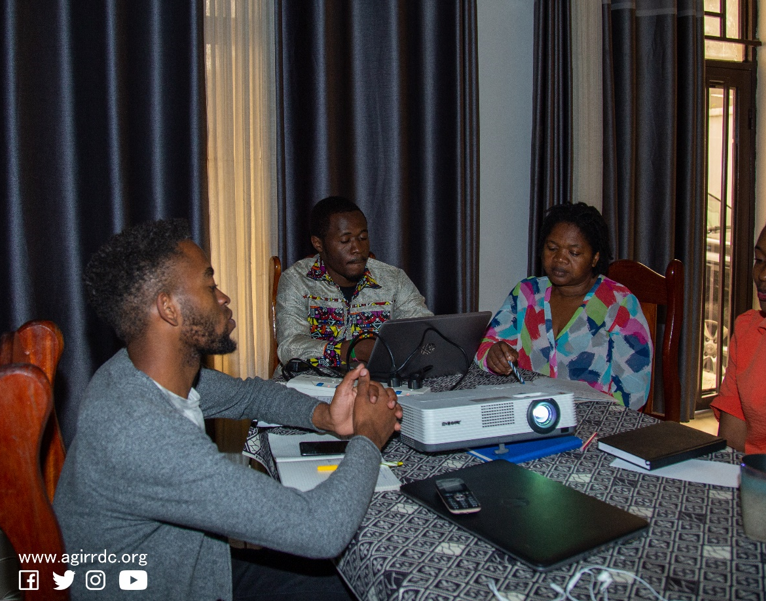Training Domestic Workers on Labor Law
Training for domestic workers focused on labour law according to the Congolese labour code and the Congolese constitution. They were an opportunity to make domestic workers understand that they are also workers in the same way as others because the Congolese Constitution recognizes the right to work for everyone in article 36 and the Labour Code in article 7 provides that the worker is "Any natural person of contracting age, whatever his sex, marital status or nationality, who has undertaken to place his professional activity, for remuneration, under the direction and authority of a natural or legal person, public or private, under the bonds of an employment contract".
Training Leaders of Domestic Workers’ Associations
The training sessions for the leaders of domestic workers' associations bring together all those involved in the promotion of domestic workers in the community to equip them regularly on subjects of national and international law that can enable them to make their mission effective.
Training AGIR RDC and UFEDOC Staff on Labor and Human Rights
During this training, the Congolese Labour Code, the International Covenant on Social and Economic Rightsand the Universal Declaration of Human Rights were exploited alongside other legal instruments such as the 8Congolese Constitution... This is in order to make staff understand that the right to work is a fundamental right and that it must be realized in good conditions in order to allow the human being to flourish.
Training Local Agents on the Importance of the Domestic Workers’ Union
These trainings introduce local agents to the protection of domestic workers at the local level and anticipate the special legalization of domestic workers' rights at the provincial level.
The Legal Clinic
A legal clinic has been set up to ensure the legal and judicial treatment of domestic workers from the various associations and even those who are not members of the associations. It receives complaints from workers who are victims of gender-based violence or violations of labour rights and accompanies them through mediation or referral to judicial or medical assistance structures. It works in close collaboration with the mental health component, which builds the confidence of domestic workers victims during the process of denunciation, investigations, referral and carries out psychological care for domestic workers victims by appropriate techniques according to the disorder identified during interviews and dialogues.

Psychological care
Psychosocial care for women victims of gender-based violence
Dialogues and interviews
Group therapy sessions
These group therapies aim to bring together all domestic workers who are victims of labour rights violations and gender-based violence so that they can discuss their problems in the workplace together and receive therapies to restore their well-being. Group discussions let domestic workers know they are not alone and provide guidance to recover their well-being.
Identifying and addressing violence against domestic workers in the workplace.
Addressing and reporting gender-based violence against women domestic workers.
Referral of domestic workers who are victims of gender-based violence to referral services.
Sensitization of the local Community in Favor of the Rights of Domestic Workers.
To assess the conditions of domestic workers, they met monthly from December to discuss together and propose possible solutions that could improve their rights.
Radio broadcasts on community radios, Pole FM and Radio Kivu Stars, on the rights of women domestic workers. On the sidelines of March, with women's rights being discussed around the world, the rights of women domestic workers were put forward so that their rights are respected and their human dignity is observed in the community with a focus on combating GBV and labour rights violations and also empowering them to thrive in the workplace.










